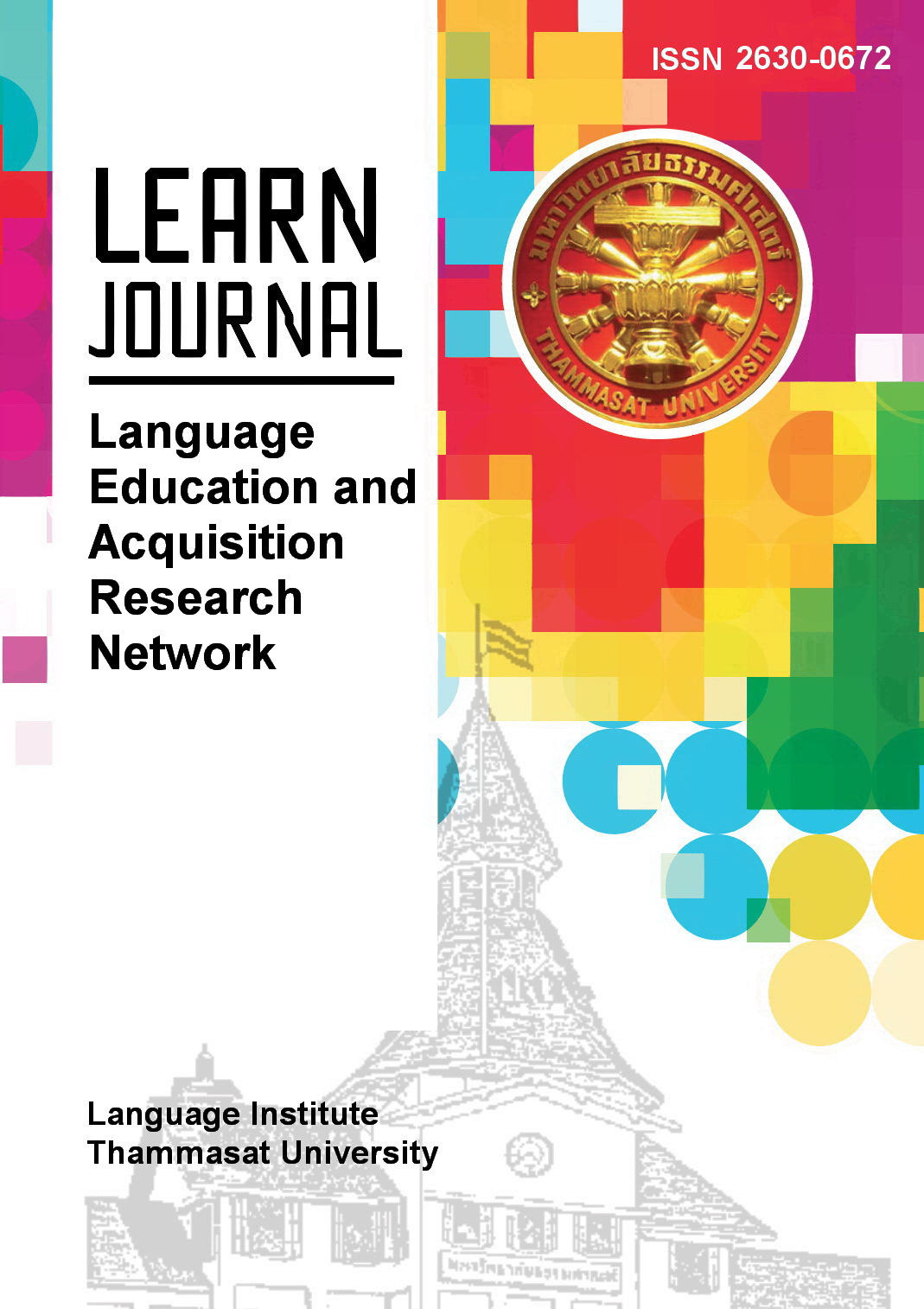Multicultural Literature for Multicultural Education: Idealism, Reality and Practicality in a Thai Tertiary Education Context
Main Article Content
Abstract
The authors of this paper argue that to promote multicultural education, multicultural literature can be a very useful tool. Since the ultimate goal of multicultural education is to achieve a more equal and more inclusive society, the literature of Southeast Asia, regarded as the true minority literature, should be seriously taken into consideration. Southeast Asian literature in English has advantages in terms of its local and universal characteristics, allowing students to explore the multicultural world and enhance their understanding of it. Unfortunately, in Thailand, English literature is usually not implemented in EFL classes in which the main focus is the drilling and development of four language skills. English literature classes, on the other hand, strongly emphasize the British and American literature, without much room for non Anglo-American literature. It is therefore proposed that to promote the diversity of literary texts and to enhance students’ multicultural learning experience, teachers and educators could incorporate the English literature of our neighboring countries such as Singapore, Malaysia, Brunei Darussalam and the Philippines in their syllabi and exploit it in their pedagogical approaches. It is hoped that the inclusion of multicultural literature will help lead Thai learners and teachers alike to the ultimate goal of multicultural education.
Article Details
References
Aerila, J., Soininen, M., & Merisuo-Storm, T. (2016). Literature as a tool in
multicultural education: Perceptions of Finnish student teachers on reading multicultural literature in Finland. Research & Reviews: Journal of Educational Studies, 2(1), 53-62.
Ako, E.O. (2004). From commonwealth to postcolonial literature.
CLC Web - Comparative Literature and Culture, 6(2), 1-7. http://dx.doi.org/10.7771/1481-4374.1227.
Aydin, H. (2013). A literature-based approaches to multicultural
education. Anthropologist, 16(1-2), 31-44.
Banks, J. A., & Banks, C. A. M. (Eds.) (2007). Multicultural education: Issues and perspectives. Allyn and Bacon.
Banks, J. (2007). Multicultural education: Characteristics and goals.
In J. A. Banks & C.A.M. Banks (Eds.), Multicultural education:
Issues and perspectives. John Wiley and Sons.
Bennett, C.I. (1999). Comprehensive multicultural education: Theory and
practice (4th ed.). Allyn and Bacon.
Rexroth, K. (n.d). Definitions of literature. https://www.britannica.com/art/literature
Chin, G. V. S., & Daud, K.M. (2018). The Southeast Asian woman writes
back: Gender, identity and nation in the literatures of Brunei
Darussalam, Malaysia, Singapore, Indonesia and the Philippines.
Springer Singapore.
Darasawang, P. (2007). English language teaching and education in
Thailand: A decade of change. In D. Prescott (Ed.), English in
Southeast Asia: Varieties, literacies and literatures (pp. 187-204).
Cambridge Scholars Publishing.
Daud, K.M. (2019). Packaging MIB: Representations of Islam in
Anglophone Bruneian fiction. In J. Fischer & J. Jammes (Eds.),
Muslim Piety as Economy: Markets, Meaning and Morality in Southeast Asia (pp. 193-210). Routledge.
Gorski, P. C. (2010). The Scholarship Informing the Practice: Multicultural
Teacher Education Philosophy and Practice in the U.S.
International Journal of Multicultural Education, 12(2).
https://doi.org/10.18251/ijme.v12i2.352
National Arts Council. (2021, June 14). Singapore arts scene: Literary arts.
https://www.nac.gov.sg/singaporeartsscene/literaryarts.html
Patke, R.S., & Holden, P. (2009). The Routledge concise history of
Southeast Asian writing in English. Routledge.
Schiro, M.S. (2013). Curriculum theory: Conflicting visions and enduring
concerns. SAGE.
The National Association for Multicultural Education. (n.d.). Definitions of
multicultural education. https://www.nameorg.org/definitions_of_multicultural_e.php


